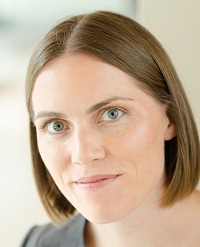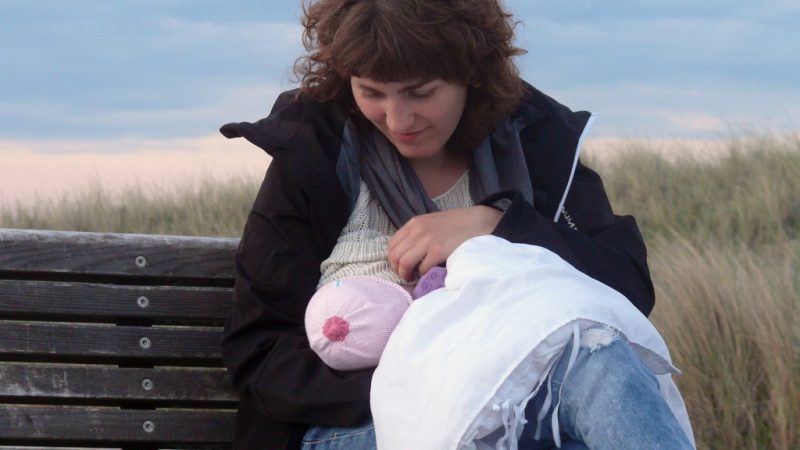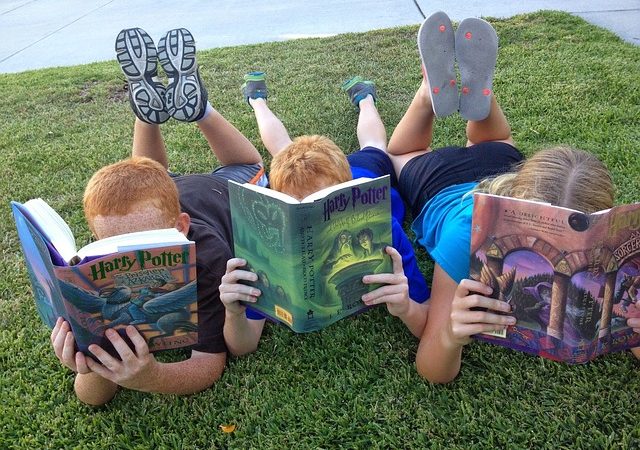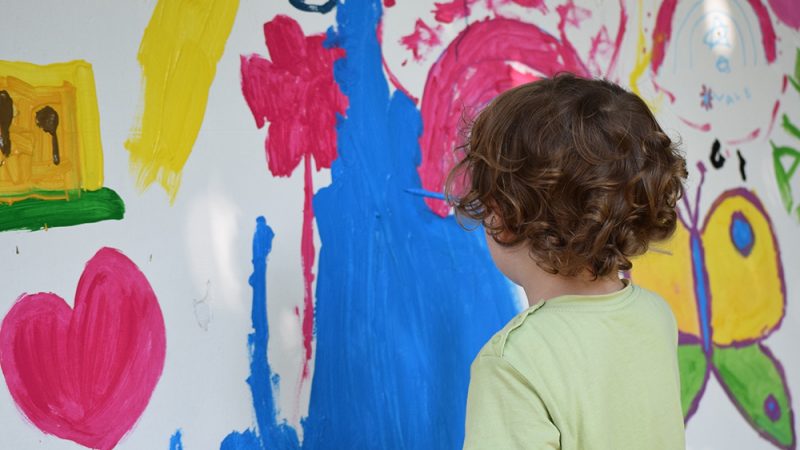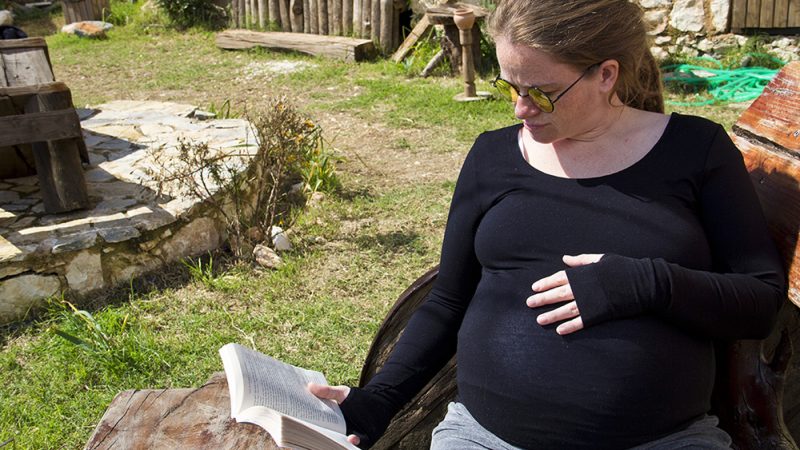
Evidence-based parenting. A Q&A with Emily Oster
Emily Oster
When Emily Oster, a professor of economics at Brown University, was pregnant, she was given a long list of dos and (mainly) don’ts about risky foods to avoid: wine, cheese, pate. But looking into the data behind the prohibitions, she found most of the rules were based on correlation, not causation — and actually didn’t do much but cause guilt and fear in pregnant women.
So she started to look into the evidence behind everything she was told about pregnancy and birth, and her findings became a book: “Expecting Better – Why the Conventional Pregnancy Wisdom is Wrong and What You Really Need to Know”
Emily came to chat to Parenting Science Gang about evidence-based parenting earlier this month:
Q: What triggered you to start investigating evidence on parenting?
Emily Oster: The main trigger for me was just having the kids. Pregnancy, and then when they actually arrived.
I think a lot of people have that instinct. I might have taken it a little far…
Parenting Science Gang Project Director: Yeah, me too 🙂
Emily: There are many, many, many evidence gaps. I am writing a second book now on parenting (after the pregnancy one) and it is astonishing how bad the evidence is on most things.
I am going to write a lot of chapters like “Eh, who knows?”
Q: How do scientists and economists differ in your approach to parenting issues?
Emily: I like to think we are scientists! (Well, not everyone agrees)…
I think we all think about evidence the same way – in terms of causality, etc – but probably economists bring more of a cost-benefit approach.
Like , I tend to think that you could acknowledge a behaviour is a little risky but decide to do it since it works for your family…
This is more of a “decision theory” lens on the problem.
Q: What parenting evidence has been most surprising to you?
Emily: Hmm… I think the most surprising general thing is how much everyone’s advice is informed by their own experiences. Like, literally, everyone wants to tell you the thing that worked exactly for them. It’s more like evidence-by-annecdote.
But I guess in terms of the specific piece of evidence I’d have to go with the exposure to peanuts actually makes your kid less allergic. That one I did not see coming.
Q: Are there any parenting types who tend to be more evidence-led than others?
Emily: I think there are some who definitely sound like they are more evidence based…
I would put the “attachment parenting” group in here, but I’m so uncomfortable with the idea of types. This is one of my big pet peeves about parenting. Like, why can’t I be the type of person who breastfeeds until my kids is three because I like that also vaccinates them and makes them sleep in their own room. Why is that not a type?
PSG A: Fair point! We can’t all be boxed off in certain groups. I know I try to be gentle and AP, but definitely struggle at times and lose my shit. I also am evidence-led with breastfeeding, however I wasn’t with my eldest. It never even occurred to me to do any research about it!
PSG B: I think there is a new ‘type’ of parent emerging as I have many friends who would perhaps be considered AP, but are very pro-evidence so are pro-vax.
Q: Yours was the only pregnancy book I read whilst pregnant and I thought it was great. Are there any other pregnancy related things you would like to add to the book, or any things you changed your mind on at all?
Emily: So, a lot of people have asked me lately about planned C-sections – like, are they a good idea. The book more or less presumes they are not. I think if I revised it, I’d want to add a discussion of this.
I do not think I changed my mind on anything that is in the book at the moment.
PSG B: Have you been looking into the C=section question?
Emily: A little bit. I think the basic thing is that recovery is just on average a lot worse, but people like the idea that it is predictable, that you will not have a lot of unexpected tearing.
PSG C: I also loved the book – the one thing I wanted more information on was the risks of going overdue. It seemed to accept that once you’re a certain amount overdue, you absolutely need to get the baby out. Was that because the evidence on that was overwhelming and so it didn’t need further discussion?
Emily: This is a good question. In the U.S. it is not super relevant since basically it’s a slog to get them to let you go past 41 weeks, never mind past 42.
So, no, it is not really about evidence just about practical stuff – like, you cannot do this so…
I guess also as a result of this there isn’t too much evidence either.
Q: I don’t have a science background, I don’t have the time to investigate studies as deeply as I’d like. The media misrepresents and exaggerates. How do I know who to trust?
Emily: this is so hard and is why the media is so frustrating. I guess I’d don’t do anything based on one media article. Your doctor might be helpful, although not always.
PSG Q: Would you be able to give us some “red flags” to watch out for?
Emily: Oh, good question. Okay:
- Very tiny study
- published in a journal with a very long name…
- no mechanism provided
- authors says things like “This is only suggestive” (since they usually overstate their claims)…
I think the mechanism stuff is pretty important. Like, on the study with the people who eat bananas have more boys (seriously this is a study) – how could that possibly be true? It couldn’t.
Q: What do you think know the quickest and easiest way for parents to sort fact from myth?
If we’re talking about studies then you want to look and see like, how many people were in this study? Is it randomized? Is it published in a reputable journal? Is there any mechanism for it?
There is no really great way to do this without a lot of practice. I think the main thing is sample size and method. More people = better, and randomized = better than not
Q: Is there any value in the anecdotal “well I turned out ok”?
Emily: Yes, that is a data point. If you get a few more, you can have a study 🙂
Q: If you could get rid of any non-evidence-based parenting choice(s), which one(s) would go? I, for example, would stop tiny children being forward-facing in cars.
Emily: I am thinking…this car seat one is good. Maybe feeding them solids at 4 months in a ritualized way?
Some kids are totally ready at that time, but a lot are not, and it’s just silly and messy if they are not.
Q: Emily, your book gave me the confidence to question consultants trying to tell me I should be induced at 36 weeks. How do we get professionals to look back critically at their own evidence?
Emily: I have thought a lot about this and I think the answer is gently. Obviously I am not so gentle…
PSG L: Neither was I at 36 weeks!
Emily: But I think these conversations are much harder when they come from a place of challenge, as opposed to a place of cooperation, so I have tried to do more to be patient and thoughtful.
(Mostly not successfully. Personal growth aims.)
Q: From an economist point of view, when there isn’t enough evidence, how do you weigh the cost v benefit? When does intuition come into play?
Emily: I think if there isn’t evidence, kind of all you have is your intuition. This is something i find hard, since I really like certainty and I think that you can find all the answers in data…. (you cannot)
Parenting has sometimes been a struggle to figure out when to let those instincts go and try to figure out what works for your particular kid. Especially as they get older and more complicated.
And we will probably never have all the data will we? What has held us back the most? The difficulties of studying babies?
It is hard to study babies, it is expensive. And there is so much variability across babies/kids/families that it is very hard to separate signal from noise.
I also think that there are a lot of ways to do things right, and this means most things you do, do not matter.
PSG M: I think that’s a huge takeaway, really. My goal has been to just try to reduce future therapy bills. I wish more online dialogue trended that way
Emily: Therapy for you or the kids? 🙂 I totally agree.
PSG M: Probably both!?
Q: Do you have any evidence based on gender stereotypical behaviours when children try to be brought up as gender neutral as possible, but yet gravitate toward typically male or female behaviours/toys/other people of same sex
Emily: I do have one friend who never gave her daughter a doll, until the day she found her putting diapers on a book. ?
PSG N: Delusions of Gender by Cordelia Fine is a fab book about gender
PSG O: Also check out Let Toys Be Toys
Q: Why do you think it is that whilst people generally want evidence based information, this just seems to go out the window when it comes to parenting. The amount of absolute non-evidenced based practices that my fellow scientist/medical parents practice is astounding! And it is a very difficult area to challenge as you are “shaming” or “judging” them.
Emily: Yes, I agree. I think it is mostly that people do not want to think they are doing something wrong, or admit it, especially if it is hard. You see this a lot with things in pregnancy – like, depriving yourself of coffee.
If you do that, you don’t want to think it was for nothing. You really want it to be important…
Similarly, if you drink a lot of coffee you really want it to be okay. I think we are all kind of looking for data which confirms our biases. This can make it hard to take evidence as it comes and really learn from it
People like the evidence best that confirms what they already thought (I think there is evidence on this. Haha.)
PSG P: Like researcher bias?
Emily: Yes, we all have this problem.
PSG Q: I just found all those pregnancy and parenting books baffling. It’s like no one ever asked “why do we do this? And what evidence is it based on?”
Q: What do you think of amber teething necklaces?
PSG F: Yes, I wish they could be proven or disproven once and for all. I just don’t see how they can work.
Emily: Wait, I don’t even know what this one is?
PSG G: The idea that amber necklaces relieve teething pain
Emily: One idea I like a lot is that teething makes your kid sick. It does not. Those are germs.
PSG H: Related to necklaces somehow! Ha
Emily: Ha! That would be funny.
PSG I: are amber teething necklaces in the US not a thing?
Emily: It sounds vaguely familiar now that you say it, but, no I think not as much
PSG J: It is in certain pockets. Upstate New York for sure!
PSG K: I hate teething powders more ? it’s just sugar. All the parents who don’t want to feed their children sugar shove teething powders which is pure sugar into their babes mouth
Emily: We do not have teething powders here, although we do have this stuff to relieve your infant of gas, which I am sure is just water.
Q: Have you researched car seats at all, in terms of the amount of time spent in them? In recent years we’ve seen the emergence of travel systems and people using car seats like a pram, carrying them indoors with babies sleeping, and also bouncer chairs which keep baby in the same position. Yet there doesn’t seem to be any proper evidence on what the risks are and how long is too long.
Emily: I did a very little bit of this with my daughter when she would only sleep in her car seat and my recollection was that the only real issues people raise are stuff about neck strength, but I will admit to not having done a lot on this. I will say that back sleeping does seem to cause these flat head issues which are exacerbated by having the kid lay down all the time. So if car seats mean no tummy time, that is bad.
PSG W: The few times I’ve read stuff about it was with regards to the SIDS link, but I haven’t explored it further. Our car seat just stayed in the car. I am interested though, for subsequent small people.
Q: It was really interesting – if very disheartening – to see in your study “does disease cause vaccinations” that programmes designed raise the vaccine rate were mostly having the opposite effect.
Why do you think this is?
Emily: I don’t know why these do not work. I think it is largely that people tend to use evidence to reinforce their priors. These studies tend to be run on people who are sceptical of vaccines, and then whatever evidence you show them is used to reinforce that scepticism.
PSG R: I heard a theory that the anti-vax myths are compelling exactly because they are stories, and because we all live in cultures that are based on story-telling, ultimately. It’s how we’ve passed down our culture and knowledge for as long as we know.
So although the evidence may be correct, it’s often no match for winning hearts and minds for people who don’t have a science background or analytcal training of some sort – as cold data doesn’t win hearts.
Does science need some great storytellers, basically? Is that maybe why the disease outbreaks work to increase the rate of vaccination? Because the story of the disease is a powerful one?
I thought it an interesting theory, do you think it could have legs?
Emily: Yes, I like this story a lot and always have. I have not found much direct evidence, though.
Q: What is your conclusion of the available evidence on bed sharing? There seems to be too many variables (sleep surface, alcohol consumption, etc) that are not accounted for in the studies. I find it hard to believe that, as primates, our young are more at risk sleeping with a sober, breastfeeding, non smoking mother on a safe surface than they are in a cot. But the evidence seems to point to that if you don’t examine it too closely…
Emily: I am hesitant to render a verdict having not finished a full analysis on this. I would say at a minimum what we can say is that if you are going to do this it is way more risky if you smoke or drink alcohol …or your partner does. The evidence is more complicated on the question of if you are a sober, breastfeeding, non-smoking mother.
PSG S: Also medications come into the mix I believe
Emily: Yes.
Oh and also sofa sharing is EXTREMELY dangerous
PSG T: Is there any evidence on the theory that infants use nearby caregivers to regulate their respiratory and heart rates? I know there is some to support them using contact with a parent for temperature regulation.
Emily: Hm, not that I know of although I do know that this is a common NICU practice. It’s a good question.
PSG T: Trying to wrap my head around how one would design a study to test it…
PSG U: I’m pretty sure one study I looked at didn’t put accidentally falling asleep on a sofa and planned bed sharing into separate categories… :/
Emily: This is a big, big problem with these studies – they are so badly designed in a lot of cases, on top of usually being these case-control studies in the first place.
PSG S: I’ve also heard the care givers and babies carbon dioxide exhaled means lighter sleep so lower risk of SIDS due to ability to rouse… does this sound accurate?
Emily: I have not heard this but it would be consistent with many other things about SIDS, namely that lighter sleep lowers the risk. Is why back sleeping, fans, pacifiers, work
PSG V: Our first Q&A was with Helen Ball, and a lot of her research is on bed sharing. So you may find this useful.
Q: What evidence could I use to show friends and family that not using cry it out or controlled crying is healthy? The same with responding immediately when he cries out for me?
Emily: Most of the evidence says if you want to use cry it out, there are no long term consequences… But if you don’t want to do it, you shouldn’t!
People are such busybodies…
PSG X: Does it not cause psychological and physiological harm from stress? And mistrust in the care giver? ?
Emily: There is no evidence that not using cry it out is a problem, it’s really just if the mom wants to get more sleep. If this works for you I cannot imagine why people care
Throwing and dropping and throwing things…some people say it becomes a game of parent pick up and pass, others say it’s due to budding scientists learning about gravity and to let them keep doing it…?! Is it true babies cannot control their release of things until a certain age?
Emily: I’m sorry! I will admit I have no idea on this. I will tell you with my own kids I can usually tell if they are throwing things down to mess with me or not. But this is not really evidence! I will add it to my list of questions for book 2
PSG Z: Lol, awesome thanks!
PSG D: Check out schema and child development – might help to answer your question
Q: People never do something they think harms their kid on purpose. Is there evidence for some practice that isn’t there that you wish there was?
Emily: I wish we knew more about discipline methods that work/don’t work.
I feel like this is really something we all struggle with, with our kids. and there are so many different philosophies
I’d like to see someone do more to tackle this in a population of children who are not troubled.
Q: If you could wave a magic wand and get some parenting studies funded, what would you chose to find evidence for?
Oh, that is good! I think breastfeeding and sleep location
PSG R: do you mean like cosleeping?
Emily: yes exactly and room sharing
PSG C: What evidence specifically do you think is lacking re bf and sleep location?
Emily: On breastfeeding I think we could use some more randomized studies run in the developed world – we have only one randomized controlled trial and it is old and in Belarus…
On sleep location, the studies are mostly case control. I think we could use more large prospective studies on sleep location, to really pin down how large the risks are and what mitigates them.
Q: From your work so far, are there any guidelines on or common practice in breastfeeding that research suggests we would be good to question?
Emily: So, I think there is much less evidence than people think about the benefits of breastfeeding for longer to the extent we have anything really compelling at all it is mostly about the first few weeks or months. There is so much debate over this “extended breastfeeding” – we really have just absolutely no reliable evidence at all on that in the developed world…
PSG P: Thanks. So it’s more that we don’t know because we don’t have the data? My understanding of the benefits of extended breastfeeding e.g. in reducing the risk of breast cancer are around it being ‘dose related’ so the longer the better.
Emily: Ah! I was talking about for the kid. Yes, I think there may be better evidence on mom….
PSG P: I would also be interested to see more studies on the virgin gut and the impact of breastfeeding on the gut after giving formula.
Emily: We do not know much on that.
PSG Q: In a recent Q&A, the researcher made an interesting statement about how breastfeeding was more about immunity than nutrition. Through this lens, extended breastfeeding makes intuitive sense for the child.
How do you counteract the response ‘oh advice is changing all the time, it’ll be different again in 10 years’? I’ve particularly encountered this with weaning and extended rear facing car seats
Emily: Yeah, that is annoying. But I guess what can we do but make decisions based on the evidence
Like, do people expect you to just do whatever given that the evidence isn’t perfect. I think we have to work with what we’ve got and later you might find out you screwed up, but probably it will be fine anyway since kids are resilient
Related links:
For more on evidence-based parenting, check out our other Q&As with the Experts.
Review of Emily’s book, Expecting Better
Emily Oster’s book: Expecting Better: Why the Conventional Pregnancy Wisdom is Wrong and What You Really Need to Know
